The private jet banked eastward as it ascended out of Lisbon. After passing Madrid and Barcelona, it flew over the Mediterranean and the Italian peninsula — Rome on the left, Naples on the right.
The husband and wife enjoying the plush cabin with their black dog were convicted swindlers from Los Angeles on the sixth day of a daring getaway. With police worldwide on alert to arrest them, they had slipped off to Portugal and hoped to vanish in the Balkans by nightfall.
Their destination was Montenegro, a small mountainous nation a few hundred miles up the Adriatic coast from Greece — an appealing alternative to prison in the United States.
At sunset, the splendor of the rugged shoreline came into view as the chartered Cessna Citation VI descended into Tivat, a posh town on the stunning Bay of Kotor, framed by the steep slopes of the Dinaric Alps.
The FBI sought the public’s help in catching fugitives Richard Ayvazyan and Marietta Terabelian.
(FBI)
There, the couple would shed their identities as Richard Ayvazyan and Marietta Terabelian, leaders of a family fraud ring that collected $18 million in pandemic relief for sham businesses in the San Fernando Valley. It was one of the many lurid scams by grifters who lied to get rescue loans during the 2020 lockdowns.
Forged Mexican passports with photos expertly embedded would clear the couple’s way into Montenegro. Rich and Mary were adopting new names worthy of a 19th century novel: Robert Niko De Leon and Nataly Rose Perez Garcia.
Yet the moment was bittersweet. Back home in Tarzana, the couple had abandoned two sons, then 16 and 14, and a daughter, 15.
In his goodbye note, Ayvazyan had claimed he and their mom had no choice. “While I am writing this our tears are dripping on our breakfast table,” he wrote. He promised the family would someday reunite.
“Without saying too much, we both love you more than anything in this world.”
In Montenegro, the danger of arrest would be constant. It was sloppiness that had undone the couple’s COVID-19 scam, and one small mistake was all it would take to upend their new life as rich Mexican ex-pats in Tivat.
Where they stashed most of their stolen money remains a mystery, but it’s clear there was plenty left for lavish spending in a town that travel guides call the next Monte Carlo.
Within days of their Sept. 3 arrival, Ayvazyan and Terabelian rented an apartment in Porto Montenegro, Tivat’s most exclusive neighborhood. Once a rundown Yugoslav shipyard, it was redeveloped in recent years as an upscale marina with cafés, bars and restaurants, gourmet grocery stores, Dior and Rolex shops, art galleries, high-end residential buildings and a five-star hotel.
Scores of superyachts were moored at the docks one recent afternoon, many of them registered in Malta, Gibraltar and Panama.
Wealthy Russians and other foreigners are a mainstay of Porto Montenegro’s clientele. For California outlaws laying down roots, the social codes of its shopkeepers — be polite, but never pry — would be an alluring amenity.
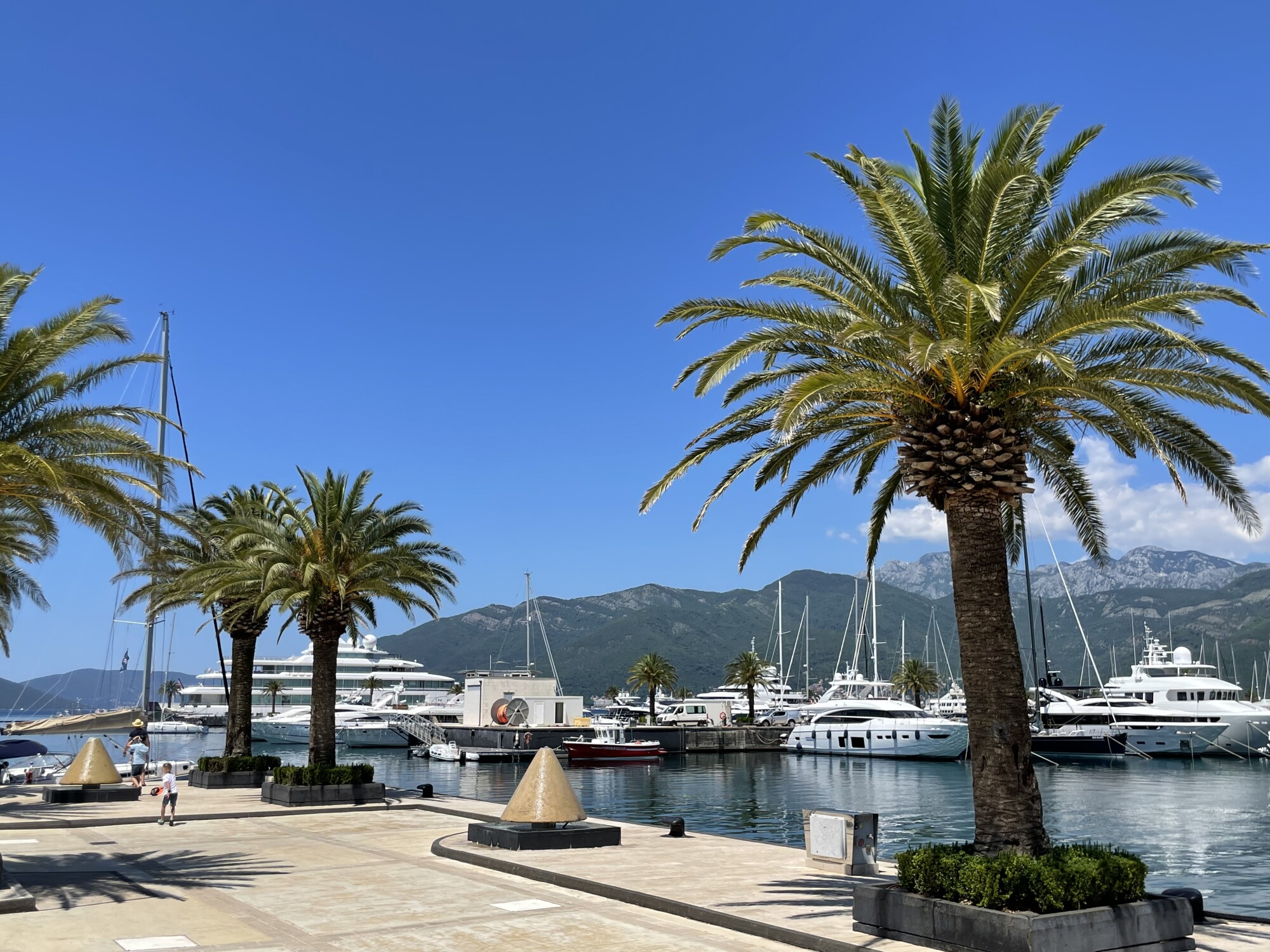
Porto Montenegro, a marina complex in Tivat, Montenegro.
(Michael Finnegan / Los Angeles Times)
“I need to know nothing,” one of them told a pair of reporters; one from The Times, the other from the Center for Investigative Journalism of Montenegro. “I know them as Niko and Natalia. I don’t need to know more.”
Of more than a dozen people interviewed in Tivat about their encounters with the couple, none was willing to be quoted by name. Several said it would be bad for business to be associated with American crooks on the lam.
From afar, Montenegro might seem like a good place to disappear. But in this insular nation of 620,000 people, wedged between Albania and Croatia, it is hard for outsiders to blend in.
“Everybody knows everybody,” and a small commotion stirs curiosity far and wide, said Dejan Boljević, the Montenegro police supervisor in charge of searches for foreign fugitives. “In Los Angeles, maybe you don’t know who are your neighbors,” he said. “Here, you know what they are eating for lunch.”
Ayvazyan and Terabelian made themselves at home. They had a Range Rover and a BMW shipped from Los Angeles. Both cars had California plates, according to the FBI.
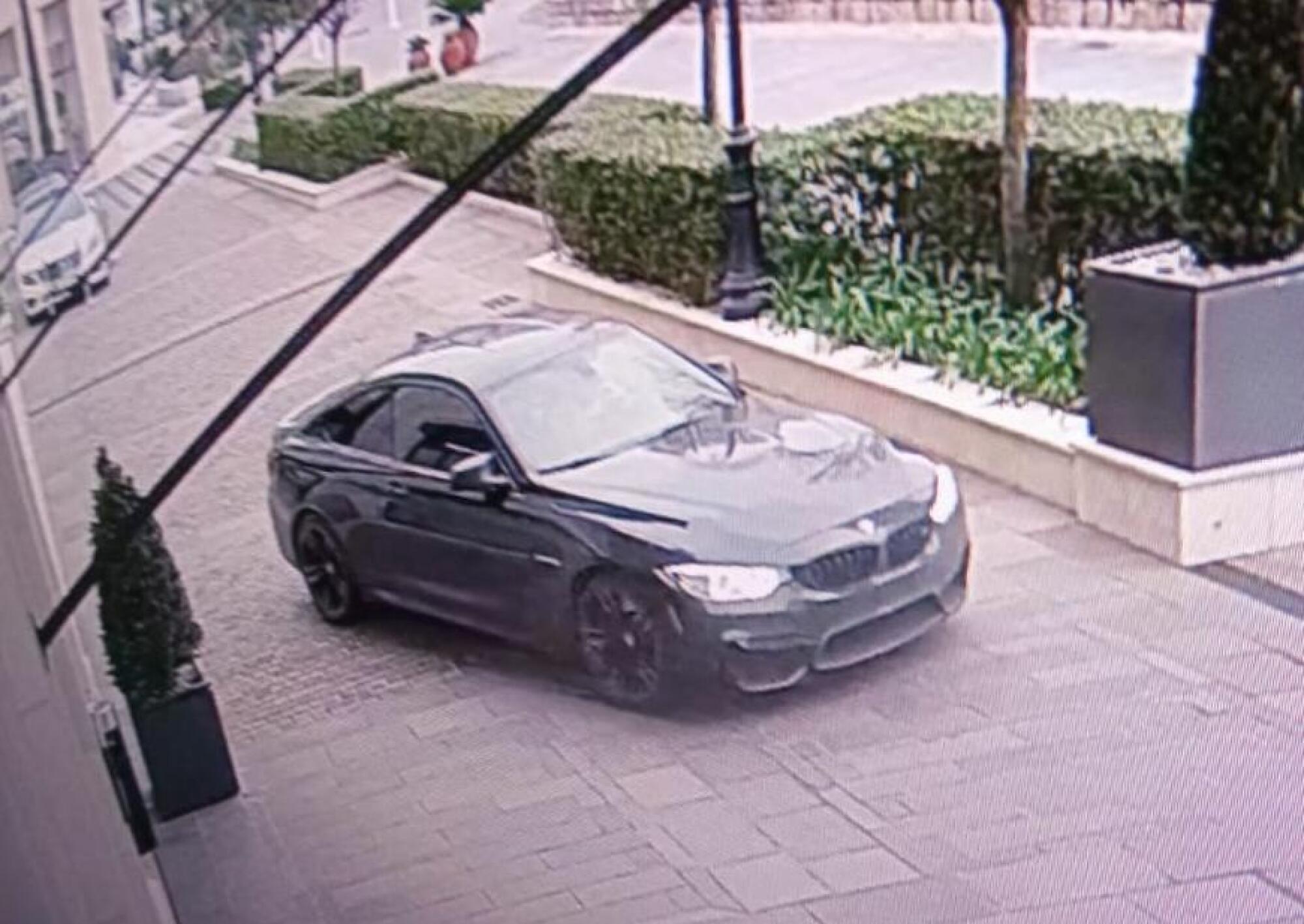
Montenegro police say that Richard Ayvazyan and his wife Marietta Terabelian had this BMW shipped from California to Montenegro in late 2021.
(Montenegro Police)
Using his De Leon alias, Ayvazyan opened an account at Banka Hipotekarna and got a temporary Montenegro residency permit. He also registered a real estate business, calling it Leon Enterprises. Apart from the one-euro filing receipt from a ministry, no sign of its operations could be found.
After a couple months, Ayvazyan and Terabelian rented a second residence on the outskirts of Tivat: A waterfront villa with a swimming pool and panoramic view of the bay. From the upstairs terrace, they could gaze at little fishing boats bobbing on the water and, in winter, the snow-capped peaks beyond.
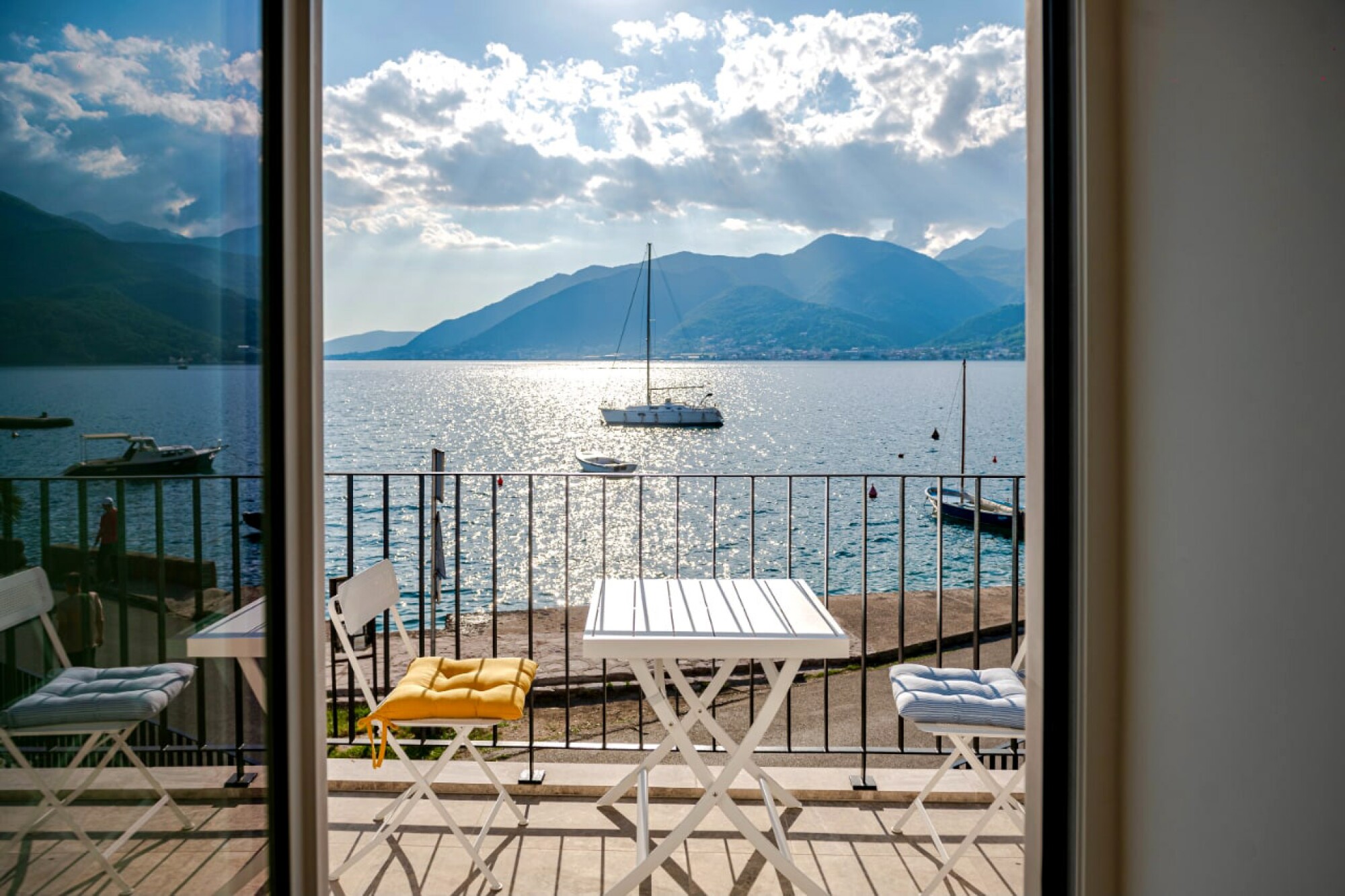
Richard Ayvazyan and Marietta Terabelian rented this residence on the outskirts of Tivat.
(Milos Vujovic)
They kept the apartment in Porto Montenegro and, at some point, rented another one, according to the police. Why they needed three places to live is unknown. Neighbors recalled seeing the Range Rover at both the villa and the apartment complex — and the black dog too.
Some locals were puzzled by the scant details they picked up about the couple’s background. “De Leon” hinted he was a Mexican of Greek origin, they said.

Waterfront villa with a swimming pool and panoramic view of the bay.
(Milos Vujovic)
Terabelian, who once ran a kids’ hair salon called Little Rock Stars in Sherman Oaks, was friendly, vendors recalled. A cashier at a shop in Porto Montenegro recalled that “Nataly” once needed help finding a real Christmas tree, because the ones she saw for sale in Tivat were plastic.
“She is very nice to me,” the cashier said after a peak at Terabelian’s mug shot on a visitor’s phone.
Terabelian acquired a reputation as a generous tipper. One merchant recalled joking with a co-worker that tips that big rarely come from people whose money was hard-earned.
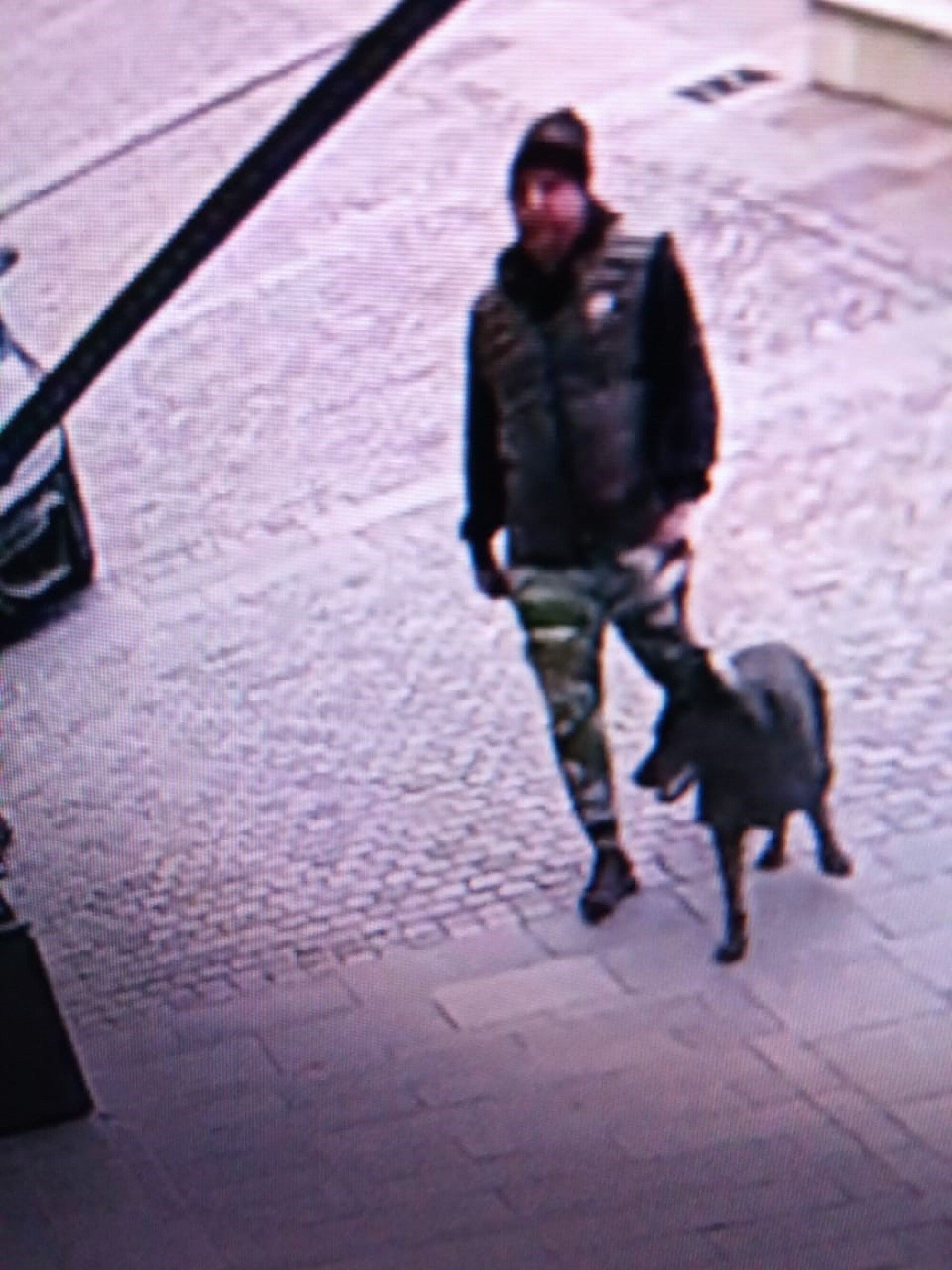
Richard Ayvazyan walking his dog when he was a fugitive in Montenegro in 2021 or 2022, according to the Montenegro police.
(Montenegro Police)
Back in Los Angeles, FBI agents were scrambling to figure out where the couple had gone. One of their leading suspicions — Armenia, where Ayvazyan was born and spent his early boyhood — was 1,800 miles off the mark.
The FBI sought help from Interpol, the global law enforcement network, and offered a $20,000 reward for tips on their location. It also raided the Encino house where Ayvazyan’s mother was living. The couple had been seen there just before they left the United States.
But the Mexican passports kept Ayvazyan, 43, and Terabelian, 37, invisible.
Their escape was a big blow to the Justice Department’s fight against pandemic fraud. Ayvazyan had masterminded a plot to secure emergency aid for 151 small businesses that, for the most part, did not exist.
Posing as “Iuliia Zhadko” and “Viktoria Kauichko,” he and Terabelian opened bank accounts for many of the fake companies that applied for loans. The swindle yielded $18 million in taxpayer money in just five months.
The couple used COVID relief to buy their Tarzana mansion overlooking the Valley. The morning the FBI raided the house, Terabelian was seen tossing a grocery bag into the backyard bushes. FBI agents fetched it and dumped the contents onto the lawn: $451,000 in cash.
Agents in combat gear yelled “hands up” and pointed assault weapons at the startled children and their cousins, some in pajamas, as they walked into the backyard with a black dog — possibly the same pet later taken to Montenegro.
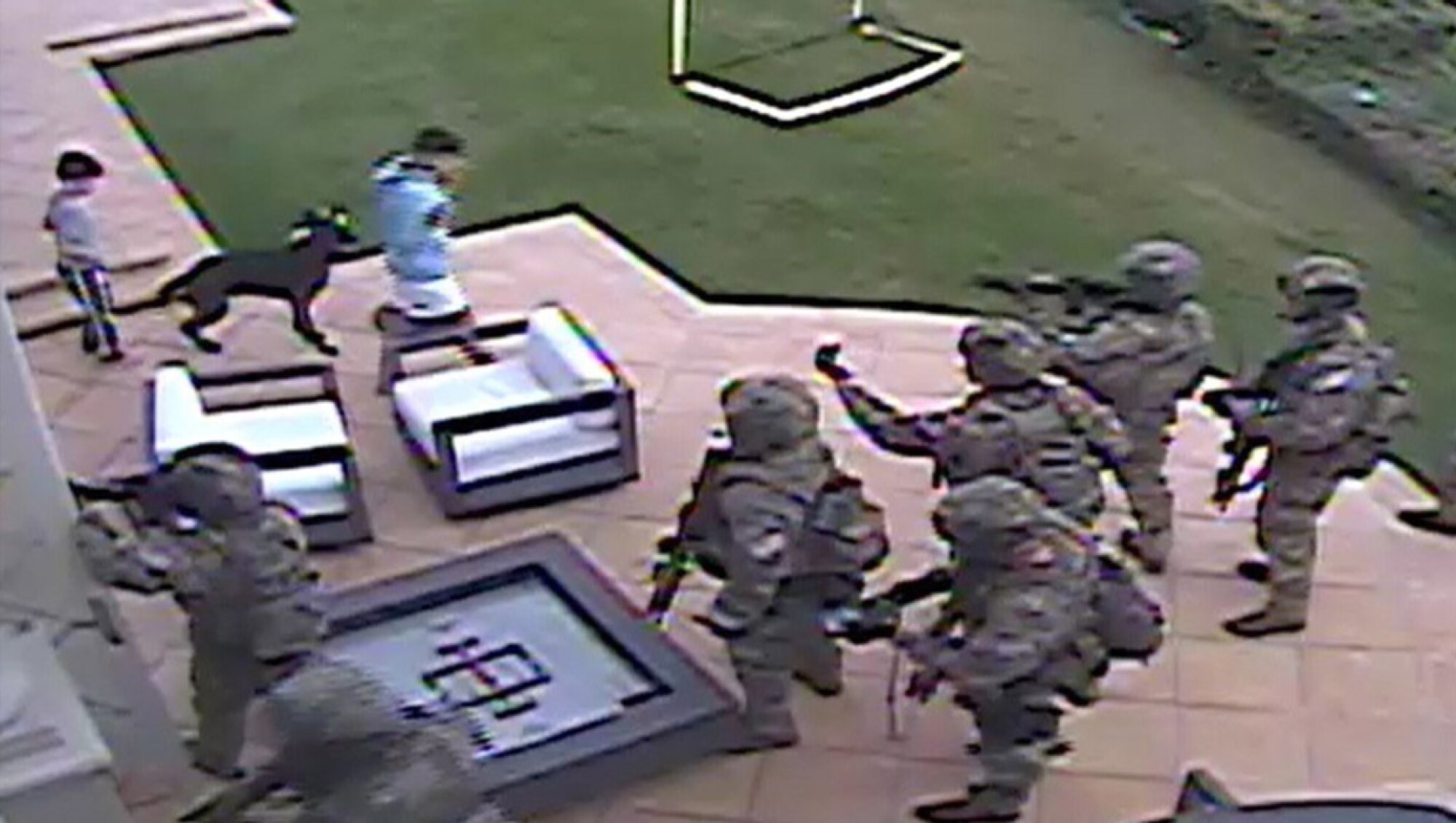
Children and the family dog exit the Tarzana home of Richard Ayvazyan and Marietta Terabelian during an early morning raid by the FBI on Nov. 5, 2020.
(U.S. District Court)
Ayvazyan, Terabelian and two relatives were convicted by a federal jury at a June 2021 trial in Los Angeles. Four accomplices pleaded guilty.
Their carelessness — it didn’t take long for auditors to flag that many businesses had attached the same employee lists to their loan applications — had done them in.
Prosecutors urged U.S. District Judge Stephen V. Wilson to have Ayvazyan locked up as soon as the trial ended, but Wilson let him stay free on bail. Two months later, he and his wife sliced off their ankle monitoring bracelets and absconded.
By the time Wilson sentenced them in absentia in November — 17 years in prison for Ayvazyan, six for Terabelian — they were settling into their bayfront villa.
A few weeks later, Ayvazyan’s chief lieutenant in the fraud ring — Tamara Dadyan — was up for sentencing. The brash Encino real estate agent had been openly contemptuous of the judge at times.
Her husband Artur was Ayvazyan’s brother. When she pleaded guilty to three felonies, she implicated both brothers and Terabelian in the crimes.
In Dadyan’s home office, the FBI had found all manner of things suggesting that she too could easily flee: Fake identification documents, credit cards for phony businesses, counterfeit and stolen notary stamps and court seals.
When Wilson sentenced her to more than 10 years in prison, a prosecutor told him Ayvazyan and Terabelian might offer Dadyan refuge in a foreign country. There was a “high, high likelihood” she would take off, he said.
But Wilson had faith in Dadyan and let her remain free. She was supposed to report to prison by noon on Jan. 28.
Dadyan blew the deadline. At four minutes after noon, she called her probation officer and promised she was on her way. Then she ditched her phone and ran for it.
Like Ayvazyan and Terabelian, she quickly sneaked off to Europe — it’s unclear how any of them did it — and abandoned two teenage daughters. Traveling with a forged British passport, she took on a new name as fanciful as her in-laws’: Isabella Angela Adamos.
On Feb. 9, she showed up at the airport in Vienna and boarded an Austrian Airlines flight bound for Podgorica, the capital of Montenegro.
If it was only a matter of time until Ayvazyan made a fateful blunder, that time had come. As Dadyan was making her way to Europe, he tipped off the FBI to his whereabouts.
Justin Palmerton, the FBI agent in charge of both the fraud case and the fugitive hunt, learned that someone in Montenegro had tried to log in to one of the bank accounts that Ayvazyan set up for a bogus company to receive pandemic relief.
Palmerton reached out to the Montenegro police. Could they find whoever was using that internet address?
Boljević’s fugitive squad opened an investigation. They determined the bank log-in attempt came from a home where “De Leon” and “Perez Garcia” were living, according to the FBI.
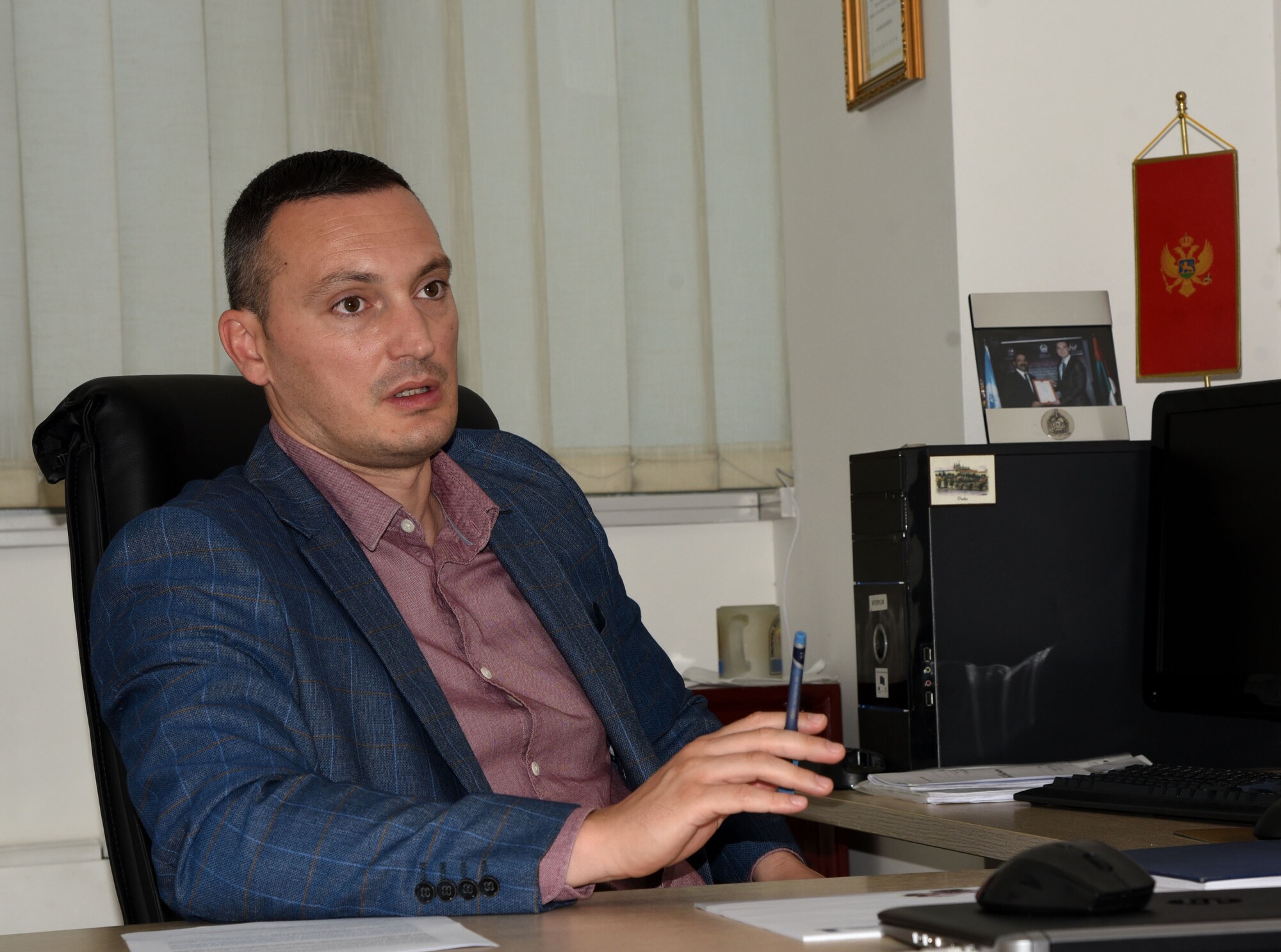
Dejan Boljević, the chief of international police cooperation at the Montenegro Police, at his office in Podgorica.
(Luka Zekovic / Vijesti)
Boljević declined to say whether it was the villa or one of the two apartments.
Police checked records on “De Leon” and “Perez Garcia” and saw they’d arrived in Tivat on the chartered flight from Lisbon, Boljević said during an hourlong interview at his office in Podgorica.
“We believe the dog was in the plane as well,” Boljević said. He provided a surveillance photo of Ayvazyan walking the dog.
Montenegrin police soon traded photos of “De Leon” and “Perez Garcia” with the FBI to ensure they had a match with Ayvazyan and Terabelian. They did.
On Feb. 22, it was time to arrest them. Boljević played down the drama that ensued.
Neighbors played it up. Police arrived at the villa and demanded to see Ayvazyan’s residency papers, they said. Ayvazyan told them he would be right there and then — while the cops waited out front — bolted out the back door.
Police raced to Porto Montenegro. No one was home at the two apartments.
Outside, police spotted a man with the couple’s dog and stopped him, several shopkeepers said. He turned out to be a startled Montenegrin merchant hired by the couple as a dog walker.
Police then learned — Boljević would not say how — that “Nataly” was in a nearby hair salon. When they arrived, stylists tried to block the officers from coming inside. “Nataly,” who was getting hair extensions, is said to have asked someone to take the keys to her Range Rover and move it so police would not see it.
Boljević declined to say how police broke the stylists’ blockade, but they eventually arrested Terabelian. She was carrying not just the Mexican passport, but also a British passport under another false identity, he said. Police checked her fingerprints. It was Terabelian.
Interpol, meanwhile, told Boljević’s team that Ayvazyan might also be carrying a British passport. Within hours, police found out he had used it to check into a hotel in Budva, a nightlife hub about a half hour down the coast from Tivat.
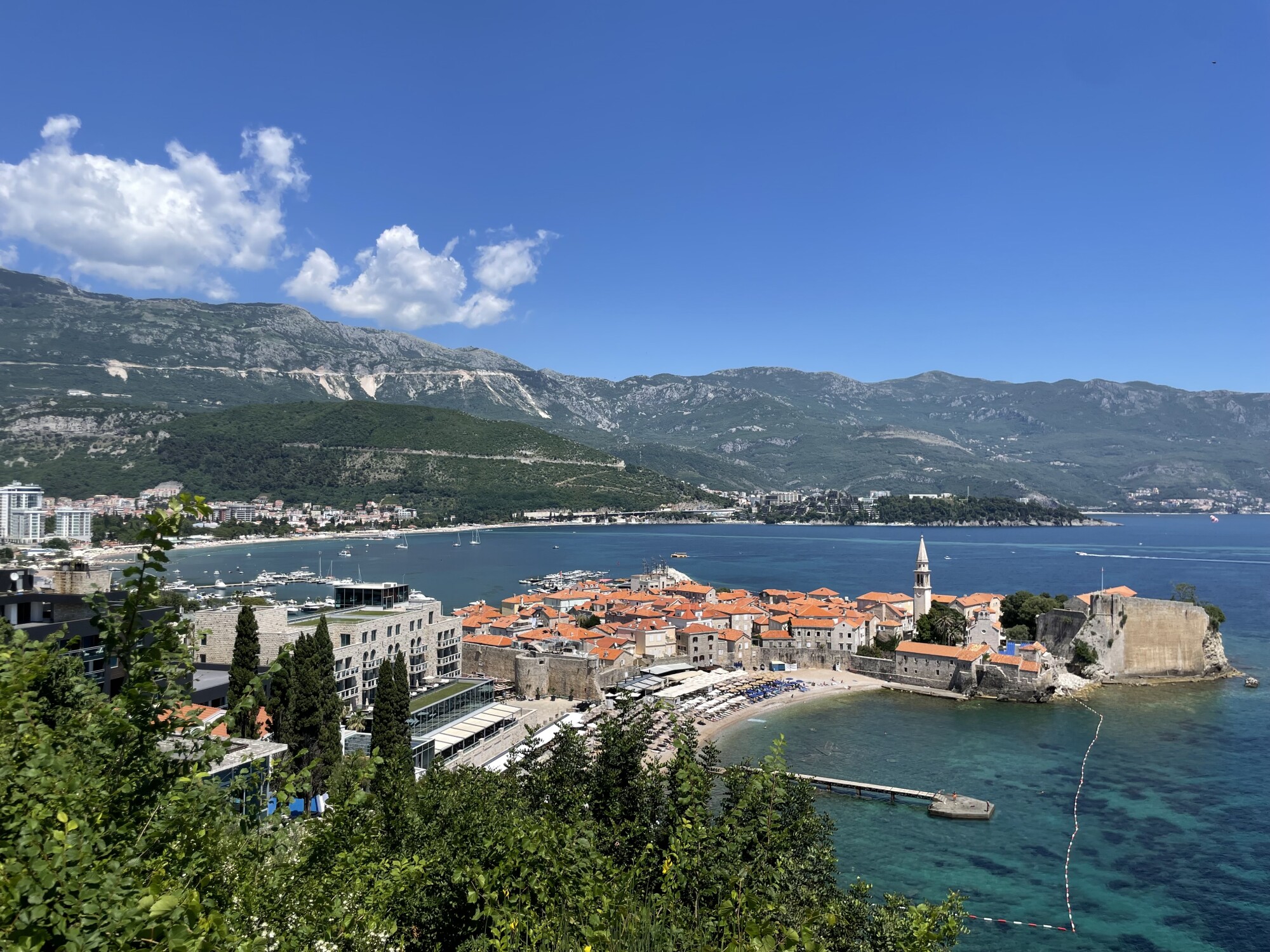
Budva, Montenegro.
(Michael Finnegan)
Staff at the Hotel Budva told police Ayvazyan had left his room with a female companion. It was the slow winter season in Budva, with no crowds to conceal them. When the two returned to their room around 2 a.m., police arrested them. The man’s fingerprints matched Ayvazyan’s.
Police had no idea who the woman might be, but after seeing her photo in articles about the fraud case online and checking with the FBI, they realized they had nabbed Dadyan too.
The fugitives’ attorneys and family members declined to comment or did not respond to messages.
All three were prosecuted in Montenegro for using forged documents to enter the country, according to Boljević. The Justice Ministry is weighing a U.S. request for their extradition. Ayvazyan has requested political asylum; his prospects are bleak.
He and Terabelian bought themselves nearly six months of the good life in Tivat. Since their capture, they have spent almost as much time in Spuž, Montenegro’s largest prison.
Family members paid them a visit at Spuž, Boljević said. They took the black dog home to California.
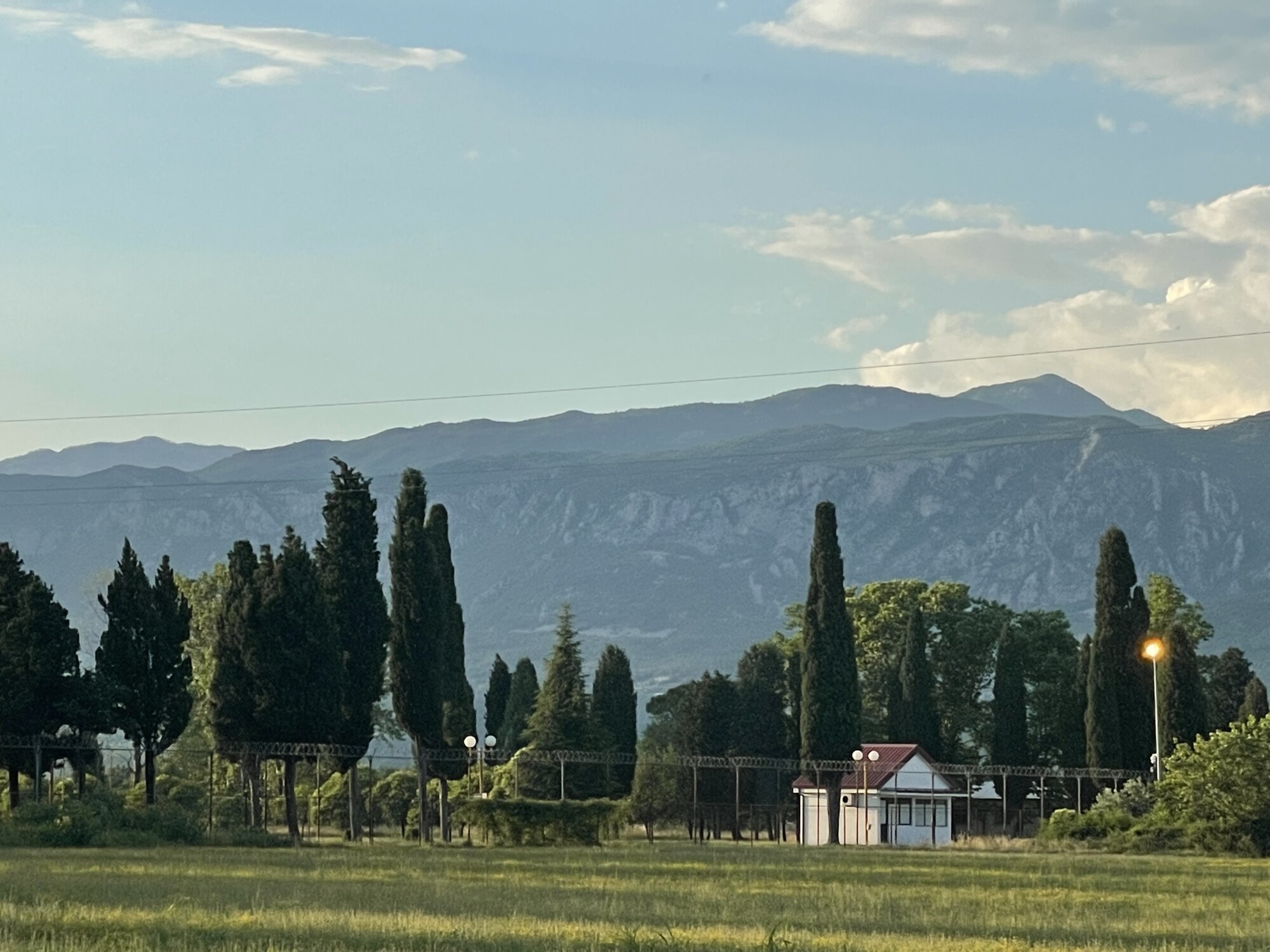
Spuž Prison in Montenegro.
(Michael Finnegan)
This article was reported in collaboration with Milos Rudovic of the Center for Investigative Journalism of Montenegro.

